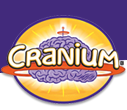
Trivial Pursuit is a board game in which winning is determined by a player's ability to answer trivia and popular culture questions. Players move their pieces around a board, the squares they land on determining the subject of a question they are asked from a card. Each correct answer allows the player's turn to continue; a correct answer on one of the six "category headquarters" spaces earns a plastic wedge which is slotted into the answerer's playing piece. The object of the game is to collect all six wedges from each "category headquarters" space, and then return to the center "hub" space to answer a question in a category selected by the other players.

Hasbro, Inc. is an American multinational toy manufacturing and entertainment holding company founded on December 6, 1923 by Henry, Hillel and Herman Hassenfeld and is incorporated and headquartered in Pawtucket, Rhode Island. Hasbro owns the trademarks and products of Kenner, Milton Bradley, Parker Brothers, and Wizards of the Coast, among others. As of August 2020, over 81.5% of its shares were held by large financial institutions.

Avalon Hill Games Inc. is a game company that publishes wargames and strategic board games. It has also published miniature wargaming rules, role-playing games and sports simulations. It is a subsidiary of Hasbro, and operates under the company's "Hasbro Gaming" division.

Parker Brothers was an American toy and game manufacturer which in 1991 became a brand of Hasbro. More than 1,800 games were published under the Parker Brothers name since 1883. Among its products were Monopoly, Clue, Sorry!, Risk, Trivial Pursuit, Ouija, Aggravation, Bop It, Scrabble, and Probe. The trade name became defunct with former products being marketed under the "Hasbro Gaming" label with the logo shown on Monopoly games.
Tiger Electronics Ltd. is an American toy manufacturer best known for its handheld electronic games, the Furby, the Talkboy, Giga Pets, the 2-XL robot, and audio games such as Brain Warp and the Brain Shift. When it was an independent company, Tiger Electronics Inc., its headquarters were in Vernon Hills, Illinois. It has been a subsidiary of Hasbro since 1998.
Tonka is an American brand and former manufacturer of toy trucks. The company was founded in 1946 and operated as an independent manufacturer of popular steel toy construction type trucks and machinery, until its sale to Hasbro in 1991.
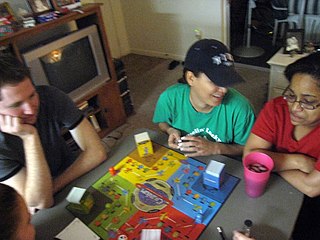
Cranium is a party game created by Whit Alexander and Richard Tait in 1998. Initially, Cranium was sold through Amazon.com and the Starbucks coffee chain, then-novel methods of distribution. After selling 44 million copies of Cranium and its sister titles, the game's manufacturer Cranium, Inc. was bought by Hasbro, Inc. for $77.5 million in 2008. Billed as "The Game for Your Whole Brain", Cranium includes a wide variety of activities, unlike many other party games. Giorgio Davanzo handles packaging and branding for the game, and the artwork is by cartoonist Gary Baseman.
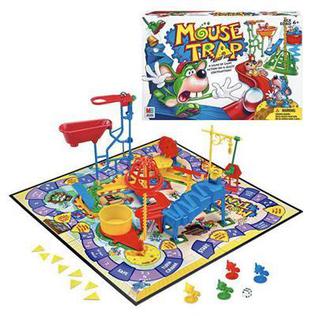
Mouse Trap is a board game first published by Ideal in 1963 for two to four players. It is one of the first mass-produced three-dimensional board games. Players at first cooperate to build a working mouse trap in the style of a Rube Goldberg machine. Then, players turn against each other to trap opponents' mouse-shaped game pieces.
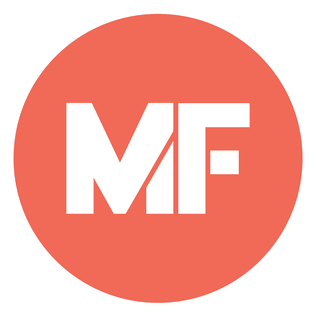
Mental Floss is an American online magazine and digital, print, and e-commerce media company focused on millennials. It is owned by Minute Media and based in New York City, United States. mentalfloss.com, which presents facts, puzzles, and trivia with a humorous tone, draws 20.5 million unique users a month. Its YouTube channel produces three weekly series and has 1.3 million subscribers. In October 2015, Mental Floss teamed with the National Geographic Channel for its first televised special, Brain Surgery Live with mental_floss, the first brain surgery ever broadcast live.
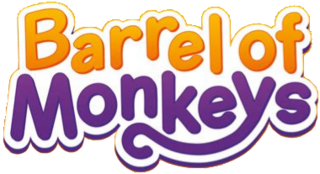
Barrel of Monkeys is a toy game released by Lakeside Toys in 1965. It was created by Leonard Marks and Milton Dinhofer in 1961, and in 1964, Herman Kesler partnered to sell it to Lakeside Toys, which released it in 1965. It was then produced by the Milton Bradley Company, and Hasbro. Milton Bradley's editions consisted of a toy barrel in either blue, yellow, red, purple, orange, gray or green. The barrel contains 13 monkeys but can hold 24, their color usually corresponding to the barrel's color. The instructions state, "Dump monkeys onto table. Pick up one monkey by an arm. Hook other arm through a second monkey's arm. Continue making a chain. Your turn is over when a monkey is dropped." In addition to these basic instructions, the barrel also contains instructions for playing alone or with two or more players.

Ideal Toy Company was an American toy company founded by Morris Michtom and his wife, Rose. During the post–World War II baby boom era, Ideal became the largest doll-making company in the United States. Their most popular dolls included Betsy Wetsy, Toni, Saucy Walker, Shirley Temple, Miss Revlon, Patti Playpal, Tammy, Thumbelina, Tiny Thumbelina, and Crissy. The company is also known for selling the Rubik's Cube.
Jay Foreman is an American businessman who lives and works in Boca Raton, Florida. He is president and CEO of Basic Fun!, which began as The Bridge Direct in 2009. Basic Fun! and its related companies, Good Stuff, K'nex, Uncle Milton, and PlayHut, design, develop and market toys for children and adult collectors. The company's product portfolio includes internally developed brands like Mash'ems and Cutetitos, as well as licensed product lines from major entertainment companies, sports leagues and other toy companies, such as Mattel and Hasbro. In 2020 the company relaunched Tonka and Care Bears, which can now be found at major retailers around the world.

The board game Monopoly has its origin in the early 20th century. The earliest known version, known as The Landlord's Game, was designed by Elizabeth Magie and first patented in 1904, but existed as early as 1902. Magie, a follower of Henry George, originally intended The Landlord's Game to illustrate the economic consequences of Ricardo's Law of economic rent and the Georgist concepts of economic privilege and land value taxation. A series of board games was developed from 1906 through the 1930s that involved the buying and selling of land and the development of that land. By 1933, a board game already existed much like the modern version of Monopoly that has been sold by Parker Brothers and related companies through the rest of the 20th century, and into the 21st. Several people, mostly in the midwestern United States and near the East Coast of the United States, contributed to its design and evolution.
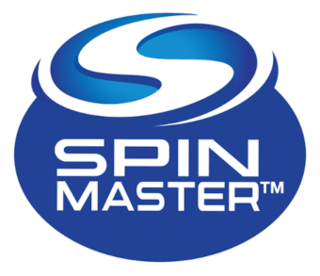
Spin Master Corp., formerly known as Spin Master Toys, is a Canadian multinational toy and entertainment company. Spin Master employs over 1,600 people globally with offices in Australia, Canada, China, France, Germany, Hong Kong, India, Italy, Japan, Mexico, the Netherlands, Poland, Slovakia, Sweden, the United Kingdom, the United States, and Vietnam.
Nubian Jak is a multi-award-winning board game, introduced in 1994, that combines questions on historical facts with pop trivia, to highlight some of the achievements by people of colour globally.

Outset Media Corporation is a Canadian company that develops and distributes family entertainment products, specializing in board games, party games, card games, and jigsaw puzzles. In addition to developing its own games, Outset Media also distributes games and puzzles in Canada for United States-based companies.

Girls' toys and games are toys and games specifically targeted at girls by the toy industry. They may be traditionally associated either exclusively or primarily with girls by adults and used by girls as an expression of identity. One commentator have argued that the market for girl's toys and games is more challenging than that for boys' toys and games.

Matthew (Matt) Nuccio is a toy designer co-credited with designing Creepy Crawlers, Tickle Me Elmo, Nintendo Power Glove, P.O.G's, Laser Challenge and Barbie Sparkle Kingdom. Products he designed have been embraced by American society, and been nominated for, or won, many of the toys industry's most important awards, such as the TOTY, the TAGie Games 100, Mensa Select, Origin, and Family Fun award.
